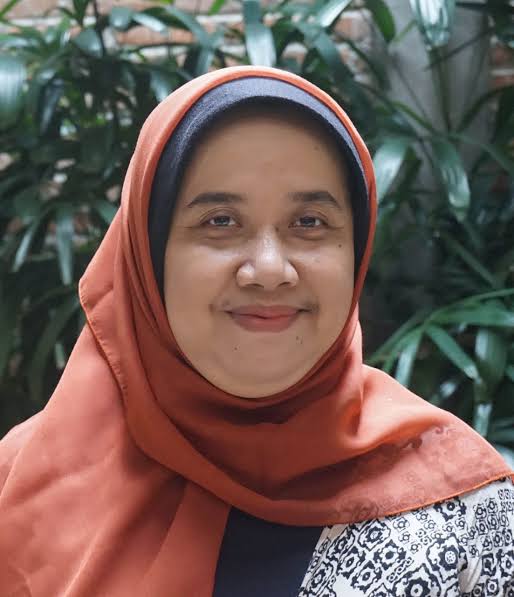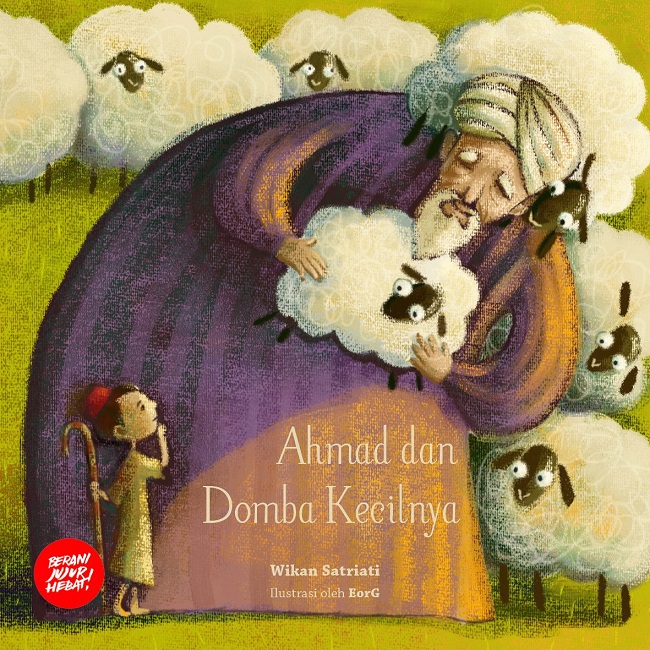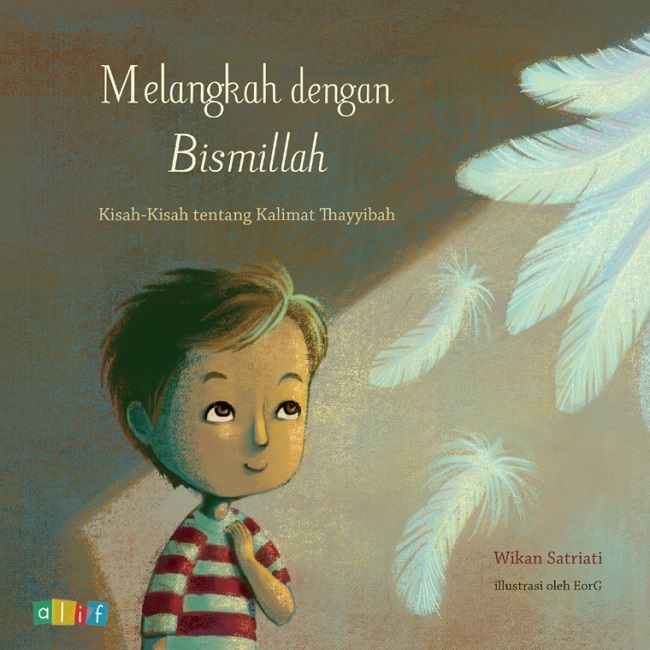Some personal reflections
Some personal reflections
Ian Campbell
Members of the far-flung networks of translators of Indonesian literary works were amongst those saddened to hear of the death of Wikan Satriati on Sunday 25 April 2021. Wikan died in Magelang, Java, as result of complications from COVID-19. She was Publications Manager at the Indonesian cultural and publications organisation, Lontar Foundation.
Born in Magelang on 23 June 1975, Wikan was a graduate of the Faculty of Letters of Gadjah Mada University in Yogyakarta. Since 2001 she worked as an editor of literary and cultural works. In 2003, she was the primary translator into Indonesian for IndonesiaTera of Harry Aveling’s classic study of Indonesian poetry, Secrets Need Words, Indonesian Poetry, 1966-1998 (2001) as Rahasia Membutuhkan Kata, Puisi Indonesia 1966-1998.
My own perspectives about Wikan come from my contact with her in relation to the publication of a small number of translated works for Lontar, and other areas of shared literary endeavour. I first met Wikan in 2007 in Jakarta when I was asked by the Director of the Utan Kayu International Literary Biennale, Sitok Srengenge, to assist with the proof-reading of the English translations of works by participants for the Biennale’s publication, Force Majeure, 2007.
When the position of Publications Assistant at Lontar became available, I urged Wikan to apply and drafted a reference for her. Here was someone, I felt, who had the qualities that would be required to work in the complex field of literary translation into publication – persistence, diplomacy, tact, and that ability to see things through to conclusion in all respects, with sensitivity not just to timelines but the feelings and viewpoints of all concerned.

Wikan further broadened her horizons as she also took on the role of Publications Manager, which involved responsibility for the range of complex processes necessary for publication of works of literature in Indonesian and related regional languages. This included working with both historical as well as contemporary works and all that is associated with the movement of texts from original language to translated text. It seemed to me the role of a Publications Manger was akin to that of an air traffic controller guiding Indonesians and foreigners alike towards the successful landing of a publication of a work originally written in Indonesian or a related regional language. Never actually meeting the pilot but essential, nevertheless. Wikan did, fortunately, eventually meet some of the translators living outside Java contributing translated versions of works Lontar had taken on.
Over the past decade or so, Lontar played an important role in moves by Indonesian organisations and individuals – and others outside Indonesia – to raise the profile of Indonesian literary works through participation in what is known in the trade as Book Markets or Fairs. Some of the evolutionary processes came to fruition in 2015 when Indonesia was named as the focus country for that year’s Frankfurt Book Market/Frankfurt Buchmesse. In 2019, there was participation in the London Book Fair, again at Frankfurt. I know Wikan was proud to contribute to processes that brought about greater international recognition of the works of Indonesian writers, poets, dramatists and others. The works represented were diverse and inclusive of writers of earlier eras as well as ‘voices’ from the contemporary scene.
On writing
As a writer herself, Wikan had a particular talent for and interest in the power of children’s literature. She wrote a number of books for children including Melangkah dengan Bismillah/Walking in the Name of God published by PT Pustaka Katakita (2006). In 2016 further publications appeared in Indonesian and English, with Republika Penerbit. Gadis Kecil Penjaga Bintang/Of Stars and Prayers was published in Indonesian and English with a Malay edition (Doa Gadis Kecil) published by PTS Malaysia also in 2015. (This book had first been published in 2008 by Katakita). In 2016 she wrote Ahmad dan Domba Kecilnya/Ahmad and His Lamb which appeared in Indonesian and English translation (Republika Penerbit). In 2018 I was honoured to assist with an English translation of her series of 10 short illustrated children’s stories published under the title Good Habits (PT Kesaint Blanc). (A particular favourite of mine was Tiwo Likes Vegetables). This series published in English was featured in the Bologna Children’s Book Fair in 2018.

I had also been in touch with Wikan on and off over the past thirteen years in her roles not just as a staff member at Lontar but in wider capacities also. In 2016 she was a member of a Committee to acknowledge Kartini’s contribution through, in part, the publication of Antologi Kartini, a collection of selected Indonesian language poems that could be linked to aspects of the life story and commemoration of Kartini, in various ways. In 2016 Inside Indonesia published a selection of these poems in bilingual format, including a poem I had first written in Indonesian in 1992, coupled with a translation into English by Harry Aveling of that poem others, including one by Wikan titled ‘Writing’.
Writing
Wikan Satriati
at the age of 12
she was locked away
imprisoned behind the regency walls
no longer allowed to go to school
to learn
which she truly loved
because she was a woman
it was time to marry
even though that was
not what she wanted to do
because she was a woman
Her life ended
in noble sacrifice
she gave birth to a son
because she was a woman
*
despite all her limitations
she fulfilled her ambitions
to read
Multatuli, Louis Coperus,
Van Eerden, Augusta de Witt
Goekoop de Jong, Berta von Suttner
she wrote to remember
she wrote to unravel her aching heart
she wrote letters
history remembers them
they have made her famous
because she was a woman?
her thoughts have survived time
centuries
and are talked about
are discussed
by the women’s movement
to this very day
because she is a writer?
the name of a woman
who writes
will be remembered
on this day.
2016
My last meeting with Wikan was in Jakarta in 2013 after I had arranged to publish in Australia a small collection of my Indonesian language poetry of recent years, under the title, Tak ada Peringatan/No Warning. As part of that trip, I was looking for a local publisher that could assist with broader distribution of the book, primarily in Jakarta, West Java, and Bali. Wikan and John McGlynn of Lontar were able to guide me to a printing venue that they had often utilised. It certainly was a marvellous experience to finally get a local printing. But that memory is also now tinged with a particular sadness as both Wikan and a Jakarta friend of mine also with me on this trip, have now passed on.
The translation and publication processes for literary texts are complex and challenging for those involved. These processes are not for the faint-hearted. Translation is not a static process as each historical era fashions new emphases over time. Wikan Satriati was one who played an essential part at the beginning of the 21st century in helping to move various Indonesian language and other related language texts into that ‘splintered’ world of the English language, and its many variants. She did this with a grace and kindness of spirit. She inspired countless others, among them people of Indonesian, Australian, and other nationalities along the way. There was an understated personal radiance and there remains a radiance of spirit. We are the poorer for the loss but richer for knowing her works. May she rest in eternal peace. Innalillahi wainnaillaihi raaji’un.
Ian Campbell (ialuca@iinet.net.au) is a writer, translator and academic. He lives in Sydney, Australia.
